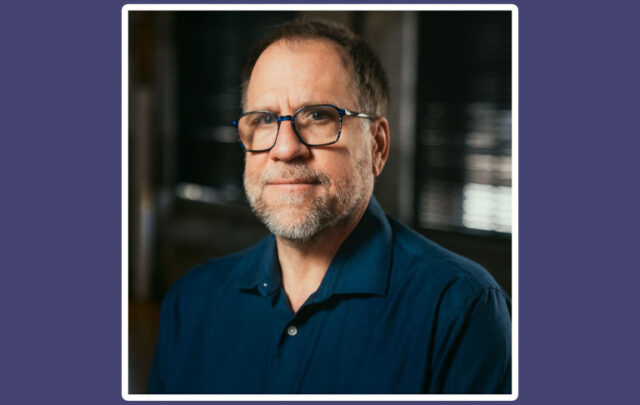Click on the headline (link) for the full text.
Some of My Best Friends Are Germs
Michael Pollan, The New York Times
I can tell you the exact date that I began to think of myself in the first-person plural — as a superorganism, that is, rather than a plain old individual human being. It happened on March 7. That’s when I opened my e-mail to find a huge, processor-choking file of charts and raw data from a laboratory located at the BioFrontiers Institute at the University of Colorado, Boulder. As part of a new citizen-science initiative called the American Gut project, the lab sequenced my microbiome — that is, the genes not of “me,” exactly, but of the several hundred microbial species with whom I share this body. These bacteria, which number around 100 trillion, are living (and dying) right now on the surface of my skin, on my tongue and deep in the coils of my intestines, where the largest contingent of them will be found, a pound or two of microbes together forming a vast, largely uncharted interior wilderness that scientists are just beginning to map.
I clicked open a file called Taxa Tables, and a colorful bar chart popped up on my screen. Each bar represented a sample taken (with a swab) from my skin, mouth and feces. For purposes of comparison, these were juxtaposed with bars representing the microbiomes of about 100 “average” Americans previously sequenced.
Here were the names of the hundreds of bacterial species that call me home. In sheer numbers, these microbes and their genes dwarf us. It turns out that we are only 10 percent human: for every human cell that is intrinsic to our body, there are about 10 resident microbes — including commensals (generally harmless freeloaders) and mutualists (favor traders) and, in only a tiny number of cases, pathogens. To the extent that we are bearers of genetic information, more than 99 percent of it is microbial. And it appears increasingly likely that this “second genome,” as it is sometimes called, exerts an influence on our health as great and possibly even greater than the genes we inherit from our parents. But while your inherited genes are more or less fixed, it may be possible to reshape, even cultivate, your second genome…
(15 May 2013)
Bye-Bye Baby Boomers
Carolyn Baker, Speaking Truth to Power
A May 2 article in the New York Times “Suicide Rates Rise Sharply In US” informed us that not only have suicide rates increased in the past decade among teens and the elderly, but more surprisingly, they have surged among the baby boomers. Ten days later, an article on the Alternet website asks, “Is Cutthroat Capitalism Pushing A Growing Number Of Baby Boomers To Suicide?” Certainly, we might expect adolescents and the elderly to take their own lives, but why baby boomers—people in the 35-70 age bracket?
What is it about this group? The Times suggests, “There may be something about that group, and how they think about life issues and their life choices that may make a difference.” Author and labor activist, Les Leopold, who penned the Alternet article lays blame at the feet of vulture capitalism. Here we see two different hypotheses. The first from the Times, focuses on the internal mechanism of the baby boomer demographic whereas the second targets external influences. Those familiar with my writing know that I generally favor the both/and rather than the either/or perspective, and for me, this issue is no exception. Much of the human condition entails suffering—both external suffering and our response to it, but I do not believe that we can ameliorate it by focusing only on ridding our lives of the conditions that create suffering nor on pre-occupying ourselves exclusively with our responses.
From the external perspective, we are living in an era of both replicated and unprecedented woes. Economically, our world has not suffered to this extent since the Great Depression, but those of us who are boomers were born of parents who by and large survived the enormous losses of that era. Financial hardship is not new to our species. What is new, however, are the daunting challenges of energy depletion and climate chaos. Add these to grinding economic hardship, and this planet can feel like an inordinately brutal place to be. I see no “solution” to the “Three E’s” predicament—economics, energy, and environment, but only possible responses, otherwise known as resilience—a topic unaddressed by both the New York Times and Alternet articles….
(11 May 2013)
The repentant environmentalist: Part 3
Jonathan Matthews, SpinWatch
In the final part of The Repentant Environmentalist, Jonathan Matthews looks at how the bogus PR packaging of Mark Lynas and his claims to have ditched ideology for hard science are part of a well established formula for attacking the environmental movement.
‘For a lot of people, it was an ‘Oh fuck’ moment. They realised they’d been lied to, at a very profound level, by the very people they’d trusted.’ That’s what Mark Lynas told the Observer about his speech to the Oxford Farming Conference, in which he apologised for founding the anti-GM movement.
Lynas said he thought ‘millions’ had now seen the speech. But despite his new found celebrity, the Observer’s profile painted him as a lonely figure – one of the ‘few’ with the courage to not just change their minds but to do so in public. He was also portrayed as if he were the victim of the environmental movement – a movement, the article said, that Lynas had been used to seeing ‘as the brave, scrappy underdogs. But the more he looked, the more little David began to resemble Goliath.’
The Observer is far from alone in being entranced by the runaway narrative of the environmental heretic who ditched ideology for hard science. But the portrayal of Lynas as the lone repentant environmentalist standing up to the green Goliath is in reality just the latest reincarnation of an all too familiar line of attack….
(17 April 2013)
Thanks for coming
John McAndrew, Dark Mountain blog
My father had two prostate surgeries when he was in his mid seventies. After the second one he contracted something called Guillain-Barre Syndrome. It caused a paralysis that began in his hands and feet and quickly, within days, spread to his cardiovascular system. After weeks in Intensive Care, he beat it. He was rarely ill. He battled phlebitis and had the occasional flu, but that was it. He was 77, but healthy enough to beat Guillain-Barre.
He was released from Intensive Care, and died three or four days later of pneumonia, which had set in while he had a tube down his throat, helping him to breathe, for 8 weeks.
I thought he was coming home. During our last visit, the night before he died, I was surprised to find that he was having difficulty talking. When he said something I couldn’t understand, I suggested that he write it down, but he shook his head. I figured that, whatever it was, it could be dealt with when he finally came home. Since we couldn’t really talk, I cut our visit short. I had no idea he was dying. But for some reason, acting completely out of character for our relationship, before leaving, I leaned over and kissed his forehead and told him I loved him. Lucky: it was the last time I saw him alive. I thought we’d have a lot longer to sort things out.
…I have been trying for months to write about climate change and other threats to the environment: about my fear of the fires and floods; the plastic patch the size of Texas in the Pacific; the disappearing bees; the skies nearly empty of birds. I am aghast at those who refuse to acknowledge climate change, like smokers denying the connection between their habit and their cancer. I am confused by the lack of urgency our governments exhibit, and the questions they don’t have the courage to ask, much less debate. I vacillate between rage and a philosophical detachment. The rage is frustrating because I have no clear enemy to pummel. The detachment sometimes feels too much like giving up too soon. It’s like suffering all the stages of grief at once. It’s hard to write, at least coherently, when fear, sadness and rage are jockeying for pride of place on the keyboard….
(14 May 2013)
Needed: An ecosocialist cosmovision
Chris Gilbert, Climate and Capitalism
Capitalism has the dubious honor of being the first civilization lacking in a cosmovision. From original communitarianism forward, we encounter societies that see man as part of a more or less inviolable socio-natural order: these ordering systems range from the totemic structures of original communitary societies to medieval conceptions such as the “great chain of being.”
The best explanation for this nearly universal characteristic is that in all previous societies human beings were in the dominated pole of the society-nature dyad. As a consequence, there evolved rich mythological apparatuses. Myth served to mediate the relation to a natural world that could not be controlled or dominated.
Socio-natural ideas of order even informed practices of governance in as much as rulers inevitably sought to maintain – and were responsible for – a harmonious relation with nature…
(13 May 2013)






